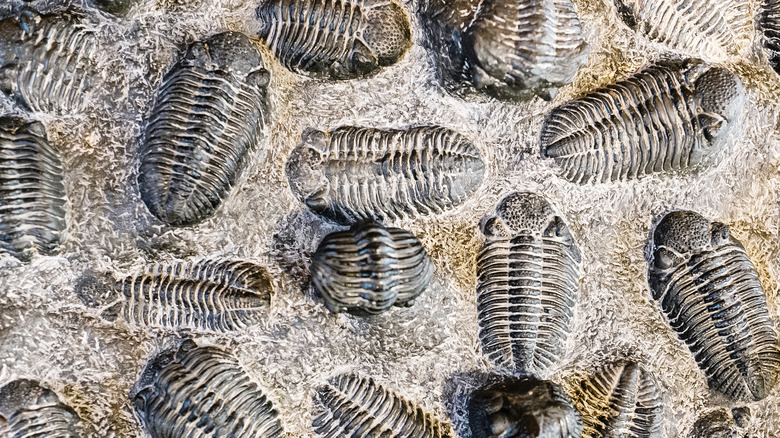What You Should Do If You Think You Found A Fossil
The process of fossilization is a far more complex one than most people realize. In addition to the more stereotypical image of bones in the ground, compressed plants, footprints, shells, skin and feather impressions, and, in very rare cases, entire animals are among the materials that see long-term preservation. In order for a fossil to form, permineralization usually needs to occur; this is when all organic materials are gradually replaced by minerals (via Berkeley). This is a very rare event, as animals, for instance, need their remains to be buried quickly before scavengers or the elements disperse and degrade them.
The BBC reports that only around 1% of all animals have been fossilized, but despite these odds it is not impossible to come across them. From the finds of Mary Anning (via BBC) to the violent feud known as the Bone Wars, fossil hunting has been practiced by professionals and amateurs alike for decades; to this day yielding revolutionary discoveries. This begs the question; what do you do if you think you found one?
Finding a fossil doesn't automatically mean it's yours
How you proceed when discovering a prospective fossil often depends on where it was found. As far as identifying the specimen goes, it is best to submit as much information to a museum or official paleontology group as you can (including its location) so it can be compared to any other finds in the area. In terms of ownership of the fossil, where you found it is again crucial. If the land you discovered it on belongs to you, then the fossil is yours to do with as you wish (via Smithsonian Magazine). However, if it is on someone else's property or federal land, it will at the very least be an uphill battle.
In the case of Sue the Tyrannosaurus (the largest and most complete T-Rex specimen ever found), multiple claimants emerged including the Black Hills Institute (who found her), the rancher whose land she was on, the Sioux tribe, and the federal government. In other cases such as the Judith River Dinosaur Institute, efforts to conceal the true excavation site of fossils they had found led to the group's head being imprisoned for theft. That being said it is not impossible to win fossil ownership cases. This was learned by the Murray family, who after 14 years won ownership of the Dueling Dinos fossil from the previous owners of their land (via ScienceMag).

